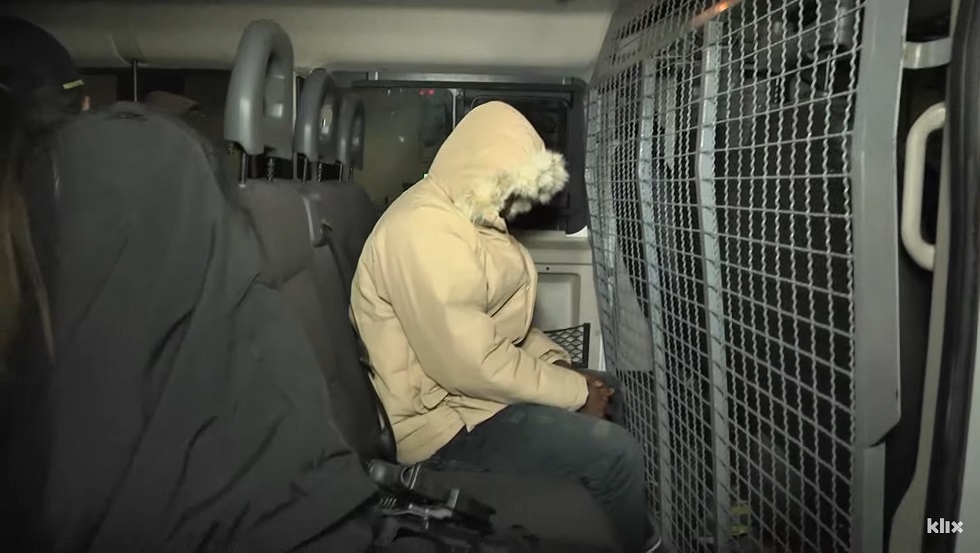Croatia Migrant Crisis: Interior Minister Will Not Send Army to Border
March 2, 2020 - Davor Božinović, the Interior Minister of Croatia, emphasised that there is no need to send the army to the border, because Croatia deals with illegal migrants daily. He added that Croatia’s border protection system maintains communication with colleagues from other countries on every level. And they are working together to pursue a diplomatic solution.
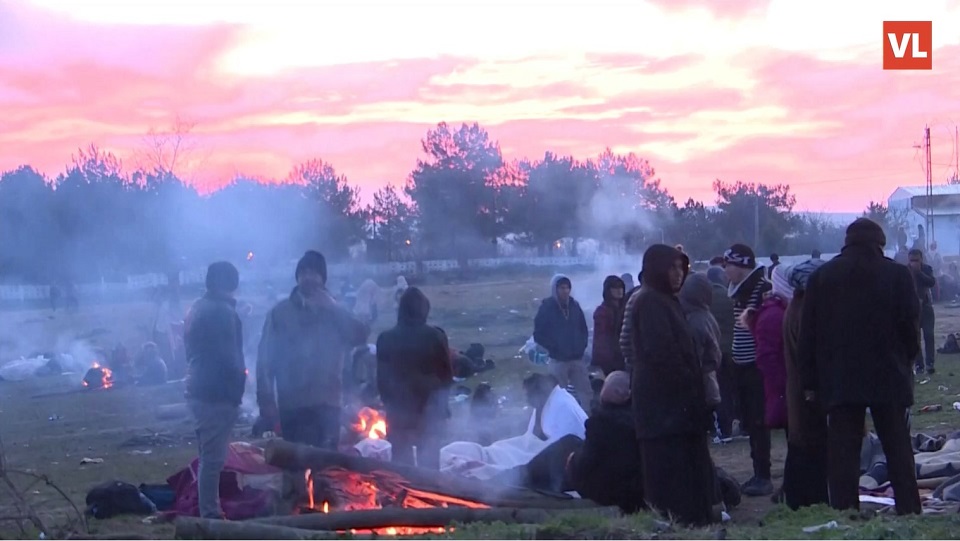
Croatia Eastern Border: No Increase in Illegal Migration
“There has been no reported increase in illegal migration on Croatia's eastern borders. The police are doing their job and the situation is no different than yesterday or the day before. Croatia has been dealing with illegal migration every day for almost three years now. That is why, even with these new circumstances, we can confirm that our border protection system fully operational and doing its job,” Interior Minister Davor Božinović said today. He noted that presently there is no need to send the army to the Croatian border, even though that remains a legal possibility, according to Marina Borovac/Večernji List on March 2, 2020.
“We will see how the situation on the Greek and Bulgarian borders develops, in relation to Turkey’s recent actions (release of migrants from their country). We are in close contact with our colleagues (from other countries) on every level. One direction we are going is certainly the diplomatic route. After all, the President of the European Council, the President of the European Commission and the President of the European Parliament will visit the Greek border tomorrow to see the situation there. At the same time, talks are underway with the Turkish leadership, which is part of the diplomatic role. The aim is to return to the EU-Turkey agreement of 2016,” Božinović added, and is confident that diplomacy would be the goal.
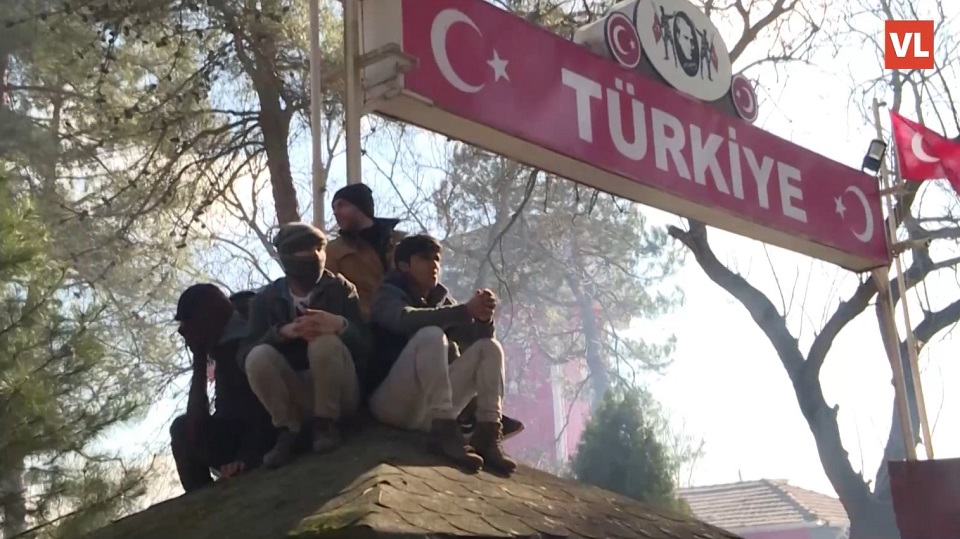
Croatia Will Discuss Border Assistance to Greece, Bulgaria
Božinović announced an upcoming meeting of European interior ministers to discuss what assistance can be sent to Greece and Bulgaria. He says both countries are committed to deterring illegal migration, which is in the wake of the new European Commission's policy regarding the protection of the EU's external borders. Božinović recalled that there was a migrant wave in 2015 because Greece had allowed migrants to pass through their territory.
“This is the only way to prevent the 2015 and 2016 scenario from happening again. Today, not only Greece, but every country has made their objectives very clear regarding the protection of their borders along the so-called Western Balkan route,” the interior minister concluded.
Croatia will emphasize its plight with protecting Europe's borders, but reiterates that the issue of the migrant crisis can only be resolved through (the agreement upon) a common European policy.
Follow our Politics page and this page to keep up-to-date on the migrant crisis along the Western Balkan route in Croatia.
Croatia: Dubrovnik Police Rescue 36 Migrants on Inflatable Dinghy in Aegean
During surveillance of the European Union's maritime border with Turkey, as part of the Frontex Poseidon mission, four naval officers from Dubrovnik, Croatia rescued 36 migrants from an unmanned dinghy in the Aegean Sea on February 10, according to Dubrovnik police who were monitoring the area.
A migrant dinghy was observed in the area from the Evros (Marica) river delta heading toward Makri, Greece. Cries were heard from the small inflatable vessel, and officers immediately came to the rescue.
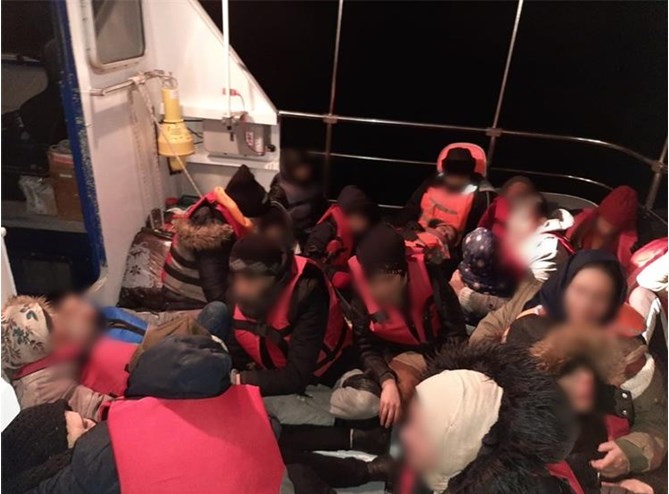
Croatia Police: Migrants on Dinghy Chilled, Dehydrated, Unconscious
"They found 36 foreign nationals on the dinghy, including five children, 11 women and 20 men. All were in poor health: chilled, dehydrated and some were unconscious. The inflatable had run out of fuel and the sea temperature where they were found was only 2 degrees Celsius. It is difficult to say what might have happened to them had they not been rescued,” the Dubrovnik-Neretva Police Department pointed out.
The migrants were transported to a police vessel where officers provided them with water, hot drinks and thermal foil to warm them, after which they were transported to the port of Alexandropolis. They were met there and put under the care of the Emergency Medical Service according to Index on February 14, 2020.
"Out of the 36 migrants, five were hospitalized, while the rest, after receiving medical assistance, were transported to a reception center following further treatment in accordance with national and European legislation," the Dubrovnik police added.
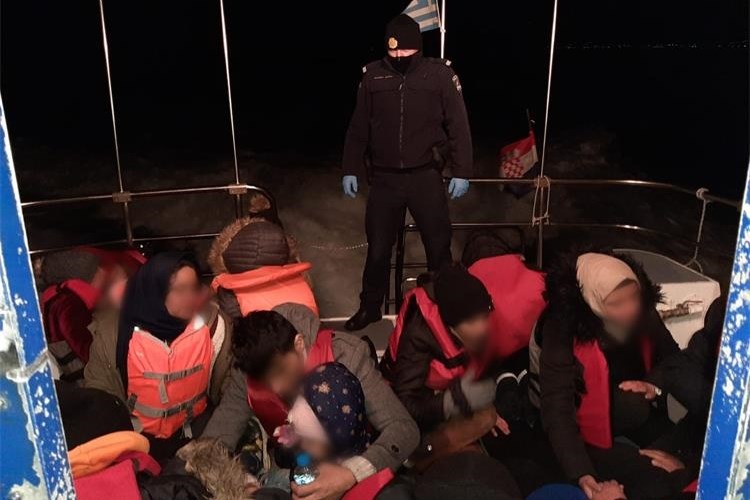
Greece Reports 60,000 Migrant Arrivals in 2019, 4,100 Arrivals in 2020
Following more than 60,000 arrivals last year, more than 4,100 refugees and migrants have reached Greek shores so far in 2020.
Recently, the Croatian parliamentary Committee on Home Affairs and National Security unanimously decided to conduct direct oversight of Croatian police work following complaints about the police treatment of migrants, Committee Chairman Ranko Ostojić (SDP) told the press after the committee meeting on February 6, 2020.
An archive of Total Croatia News coverage on the migrant crisis in Croatia can be accessed here.
Zagreb Police Announce Road Safety Action: Emphasis Placed on 4 Things
As Poslovni Dnevnik writes on the 4th of February, 2020, the Zagreb Police Department has announced that with regard to two fatalities which occurred in traffic accidents this weekend in the area for which the Zagreb Police Department is responsible, enforcement will be stepped up.
In Samobor, a 20-year-old driver was tragically killed on the road, and in Zagreb, more precisely on Jadranska avenija (Adriatic avenue) a motorcyclist was killed. As such, the Zagreb Police Department have readily announced upcoming repressive measures on the roads.
Accordingly, it has been pointed out that back in 2015, and in particular in 2019, the main quantitative objective of the National Road Safety Program 2011-2020 was reached, according to which, in the period from 2011 to 2020, the number of people killed in road accidents should have been halved when compared to back in 2010.
In 2019, in the area over which the Zagreb Police Department is responsible, a positive trend of increasing road safety continued, which was established in 2018 when 55 people sadly died, and in 2019, 38 people were killed in traffic accidents. While still tragic, the number is much lower.
In almost all traffic accidents involving persons killed, the cause is either breaking the speed limit, which is often directly related to driving with a blood alcohol level which is over the limit, and also the illicit use of mobile phones and other handheld electronic devices by drivers. Not wearing a seabelt tends to exaggerate the consequences of such accidents, as it does with the loss of life incurred.
Furthermore, given the high proportion of pedestrians injured in road traffic accents, it's worth noting that the most common driver errors are once again speeding, while the most common pedestrian errors are the improper crossing of the road by not using the pedestrian crossing or continuing to cross when the ''little green man'' has turned red again.
For this reason, intensive measures will be taken by the Zagreb Police Department in the upcoming period with the aim of increasing the overall road safety situation. The measures will be aimed at reducing the number of misdemeanors that most often lead to traffic accidents with the most serious consequences, ie, to the so-called "four killers on the road'' - alcohol, speed, mobile phone usage and not wearing a seatbelt.
The Zagreb Police Department has noted that alongside the four aforementioned points, they will also be watching closely for any other traffic misdemeanors.
Make sure to follow our lifestyle page for more. If it's just Zagreb you're interested in, give Total Zagreb a follow or check out our dedicated Zagreb in a Page for all you need to know.
MUP Orders Two Patrol Boats - Discrimination Against Croatian Shipyards?
As Novac/Jozo Vrdoljak/Privredni.hr writes on the 1st of February, 2020, the Ministry of the Interior (MUP) has launched a public tender for the construction of two patrol vessels intended for border control worth 39.5 million kuna excluding VAT, but the conditions defined in the tender are such that no Croatian shipyards can fulfil them.
Some who know the business have claimed that according to their analysis, MUP's tender looks like it was done exactly according to the design of something an Italian shipyard could do.
''The tender evaluation criteria was deliberately set up to discriminate against Croatian shipyards. For example, a delivery period of fifteen months is scored with 0 points, while an eight-month delivery is scored with 10 points. This indicates that the contracting authority has the knowledge that the shipyard already has a finished project and therefore has an advantage over other shipyards that don't. Because such a delivery time can only be respected by a shipyard that has the project ready,'' says Tomislav Smirčić, CEO of the Croatian shipyard Tehnomont in Pula.
It is also discriminatory to evaluate how many similar ships a shipyard has built in the last five years: everyone knows, Tomislav claims, that Croatian shipyards haven't constructed more than one similar ship in the last five years because there was no demand for anything like that.
The Dubrovnik-based Global Group, which has taken over Montmontaza Greben shipyard from Vela Luka in its bankruptcy, said they already have two unfinished patrol ships that were to be delivered to the Greek Coast Guard and could be completed within two months.
''Unfortunately, neither of our ministries has shown any interest in these two ships being completed, despite the great need for these ships. These are the best ships of their kind in the Mediterranean,'' claims Milan Dragovic, the owner of Global Group. He adds that a job like this would mean a return to the market for the enfeebled Vela Luka shipyard.
Smircic states that a two-stage limited public procurement procedure has also been designed to benefit some shipyards and not others.
''This is because the first round [of the tender], published on December the 27th, 2019, just in time for the festive period, requires the complete design of the ship and the completion of all of the technical specification and the adjustment of all necessary designs and budgets. Such a job for a shipyard that doesn't have a ready-made project takes a very long time. And one month, over the festive period, is not enough to prepare all the documentation. The new deadline for the client is February the 14th, 2020, but that changes nothing because it still isn't enough time,'' he explains.
The estimated value of procurement isn't realistic either, they believe. Dragovic calculated that the real cost of building each individual ship, when the shipyard will not earn anything, is around three million euros per ship. So about six million euros excluding VAT or 7.5 million euros with VAT would be the real value of the tender.
''No Croatian shipyard has delivered ships worth 39.5 million kuna without VAT within the last five years, which is required by the tender. Namely, in Croatia, there has been no search for or contracting of similar vessels in the last five years,'' he stated.
''The shipyard needs to meet both the financial and the technical criteria, and neither of those things even come into it for Croatian shipbuilders. It's arguable that the two of the criteria are linked by the fact that the ships that would be built must be done within the prescribed budget, which Croatian shipyards cannot do.
In the last five years, no patrol boats have been built in Croatia. Only two were built here in Vela Luka for Greece and one at Tehnomont. The patrol vessels in our shipyard were worth 4.6 million euros, while the patrol boat built by Tehnomont was worth 2.7 million euros, and this tender is asking for a value of 5.3 million euros without VAT as a reference,'' Dragovic explains, believing MUP's tender should be scrapped and replaced with another, fairer one.
MUP: "Everything is being done according to the regulations"
The Ministry of Interior claims that the stated condition of technical and professional competence is defined in accordance with Article 268 of the Law on Public Procurement. They point out that a preliminary consultation was conducted for this procurement process on November the 19th, 2019, during which none of the potential bidders raised an objection, and that the financial framework and basic conditions that the vessel must satisfy were not arbitrarily defined.
''Under the Internal Security Fund (ISF), the European Commission has secured 123.6 million euros for the procurement of equipment to be made available to the European Border and Coast Guard Agency. Using the aforementioned funds, the Ministry of the Interior nominated the project of the construction of two vessels for state border surveillance. Funding is provided by the Fund in the amount of 90 percent, while the remaining 10 percent of the co-financing will be borne by Croatia,'' they explained.
To that end, they claim, the European Border and Coast Guard Agency has set the required minimum maritime requirements for the aforementioned ships, as well as the equipment requirements.
''According to the technical guidelines and requirements related to the characteristics of the vessel determined by the European Agency of the competent service, technical specifications have been drawn up,'' MUP clarified.
Follow our dedicated business page for more on Croatian shipyards.
MUP to Obtain Facial Recognition Technology Despite Potential EU Ban
As Poslovni Dnevnik/Bernard Ivezic writes on the 21st of January, 2020, the European Union (EU) wants to ban the use of facial recognition technology within five years, but in spite of that, the Croatian Ministry of the Interior (MUP) has announced a tender for the adoption of such technology so that it can profile all citizens of Split in a mere two minutes and all citizens of Zagreb in just ten minutes.
Alphabet, the company that earns the most revenue from the use of artificial intelligence in online advertising and develops some of the most widespread AI technologies in the world, including those built into Android mobile phones, has called on the US and the EU to regulate AI and bring it into line properly. Alphabet CEO Sundar Pichai posted a comment in the Financial Times (FT) stating that it is not questionable whether AI should be regulated, and that the question rests solely on how to approach it.
"Companies like ours can not only develop new, promising technologies and let the market decide how they will be used, it's fundamental for us to ensure that the technologies we've developed are used for good and are accessible to everyone," Pichai wrote.
The United States and the European Union are already preparing artificial intelligence regulations. While the US proposes a soft approach, the EU is considering totalling banning the use of AI-based face recognition technology within the next five years to help the bloc's extensive legislature keep up with the advances and applications of such technology.
The EU took that route after China demonstrated that facial recognition technology, paired with access to all cameras in China's public and private space, could be used not only to search for criminals but also to fully track the movements and behaviour of its citizens, which is a gross invasion of privacy.
In one of the richest EU member states, the United Kingdom, a regulator has launched an investigation against a developer called Argent over the use of facial recognition technology on cameras in London's King's Cross, also known as St. Pancras from which the Eurostar train departs for both Paris and Brussels.
The investigation came about after the media found out that Argent was recording and profiling tens of thousands of citizens on a daily basis, and entirely without their knowledge. This is a particularly sensitive issue in London, which has the most cameras in public spaces in all of Europe, more than half a million of them, already used by police to prevent crime and search for criminals.
MUP appears unaffected by the negativity surrounding such technology, and recently MUP announced a tender worth 2.8 million kuna through which it seeks out facial recognition software that would enable it to identify the faces of 3000 citizens in mere seconds.
Pichai is naturally concerned that the US and the EU have started to regulate AI in different directions. All major companies, including Alphabet's Google, then Amazon, Microsoft, Facebook and Apple are developing their own AI technology offers and are already offering it to some extent or another here in Croatia as cloud services.
For more on MUP, follow our dedicated lifestyle page.
Croatian Ministry of the Interior (MUP) Obtaining Million Euro Equipment
Cybercrime is a growing problem in our ever more technologically minded modern society, and MUP is catching up, too.
As Poslovni Dnevnik writes on the 8th of January, 2020, the Croatian Ministry of the Interior (MUP) has begun implementing the project called ''Strengthening MUP's Capacity to Combat All Forms of Cybercrime '', in which it will procure equipment worth almost one million euros and educate police officers on how to successfully combat cybercrime.
A statement from MUP claims that the decision to award the project implementation funding was made by the Schengen Coordination and EU Funds Independent Sector, and the project will procure equipment and computer programs that will allow for the efficient execution of court orders to search holders of electronic evidence such as computers, laptops, tablets, hard drives, mobile (cell) phones and more.
In addition, 31 police officers will be intensively trained to raise their competencies for successfully combating cybercrime in Croatia. The topics of education will be the basics of attack and protection of information systems and information security, architecture, models, mechanisms and principles of information technology, digital traces, evidence and forensics, as well as prevention, surveillance and more specialised areas of cyber-attacks.
The allocation of funding for these projects is based on the exclusive competence of the Cyber Security Police Crime Service, with a total estimated budget of 995,000 euros with VAT, while the European Union's co-financing percentage stands at ninety percent of that figure in total.
MUP has stated that the training of the police officers, which was based on a previously conducted public tender, has been being conducted by the Algebra Tenderer Community d.o.o. and the Zagreb Faculty of Electrical Engineering and Computing from November 2019, and will continue until February this year.
Make sure to follow our dedicated lifestyle page for much more on MUP, crime, policing and the judiciary in Croatia.
Turkish Smuggler Crashes Migrant Van into Croatia Police Vehicle
Police officers from the Zagreb Police Department are conducting a criminal investigation involving a 34-year-old Turkish national, who attempted to smuggle 15 migrants, after he disobeyed police orders, hit a police vehicle with his van and attempted to flee.
The suspect has been detained on charges of committing the criminal offenses of "Illegal entry, movement and stay in the Republic of Croatia, another EU Member State or signatories to the Schengen Agreement", "Coercion against an official" and "Damage to someone else's property," according to Laura Vuckovic/Zagreb Info on December 28, 2019.
On Tuesday, December 24, 2019 at 12:45am, police officers stopped an Iveco Daily van with German license plates, which was driven by a 34-year-old Turkish national, at the Sveta Helena rest stop on the A4 Zagreb – Goričan motorway. Upon inspection, the officers discovered 15 asylum seekers in the cargo area of the van.
Turkish National Loaded Van in Zagreb
A criminal investigation has confirmed that the suspect, a Turkish national, placed the 15 asylum seekers in the cargo area of a van on December 24, at an undetermined location in Zagreb, with the intention of acquiring undue financial gain. While driving on the A4 Zagreb - Goričan motorway, he was spotted and stopped by police officers at a gas station, and the police officer identified himself to the driver with a badge and ID.
Although the police officer was standing next to the driver's door, the suspect disobeyed his order to turn off and exit the vehicle. Then, he attempted to flee by driving away and struck the front door of the police vehicle with his van. After about 15 meters, police officers prevented him from going any further and escaping.
After the initial criminal investigation was completed, the suspect was handed over to the detention supervisor, and a criminal complaint was filed with the State Attorney's Office on suspicion of committing the above-mentioned criminal offenses.
Almost 1000 Migrant Smugglers Arrested in Croatia
As of December 27, 2019; 976 migrant smugglers have been arrested in Croatia and charged with 904 crimes. As of the same date; 1,661 people have also applied for international protection in Croatia. In more than 70 percent of those cases, the procedure for granting international protection has been suspended because the applicants have arbitrarily left the official asylum seekers' shelter, which suggests a systematic abuse of the Procedure for International Protection.
In this scenario, asylum seekers, after being discovered while attempting cross the state border illegally into Croatia, most often within Lika-Senj Police District, express a false intention to seek international protection in Croatia after they have been detained. Then they use smuggling networks to continue their journey to their destination countries (Austria, Germany, Italy).
According to Zagreb Police, these scenarios are referred to as “secondary migrations” because they are comprised of exclusively economic migrants. These migrants do not appear to show any evidence of persecution in their country of origin, nor in the countries they are attempting to enter Croatia from (Bosnia, Serbia).
TCN reported another crash earlier this year which involved a Serbian national driving a van filled with 33 migrants, who crashed into a roadblock while attempting to flee police.
Follow our Politics page for coverage on the migrant crisis in Croatia.
Nigerian Government Official: Students Will Return Home from Croatia
Contrary to recent reports that the Bosnian government would be sending two Nigerian students, Abia Uchenna Alexandro and Eboh Kenneth Chinedu, back to their homeland directly from Bosnia, a senior Nigerian government official has confirmed in a press release today that the students will fly back to Nigeria from Zagreb, Croatia instead.
Accusations Against Croatian Police
According to the students’ uncorroborated account, they were approached by Croatian police in Zagreb on the evening of November 17, not allowed to return to their hostel to retrieve their passports and were taken instead to the nearby police station. From there, they were put inro a van with illegal migrants and sent to the Bosnian border where they were forced at gunpoint to enter Bosnia. The Croatian police and manager of the HI Youth Hostel, where the students stayed, have disputed the students’ version of events.
Fear of Returning to Croatia
According to N1 Bosnia on December 11, 2019 – Dragan Mektić, Bosnian Minister of Security explained that the students would be returned to Nigeria directly from Bosnia via the AVR voluntary repatriation program. He noted that the students had expressed fear of returning to Croatia. The students also insisted, in interviews with Žurnal and The Guardian, that they would not return to Croatia without UN escorts. However, a top Nigerian government official has confirmed today that the students will, in fact, be returning to Nigeria from Croatia.
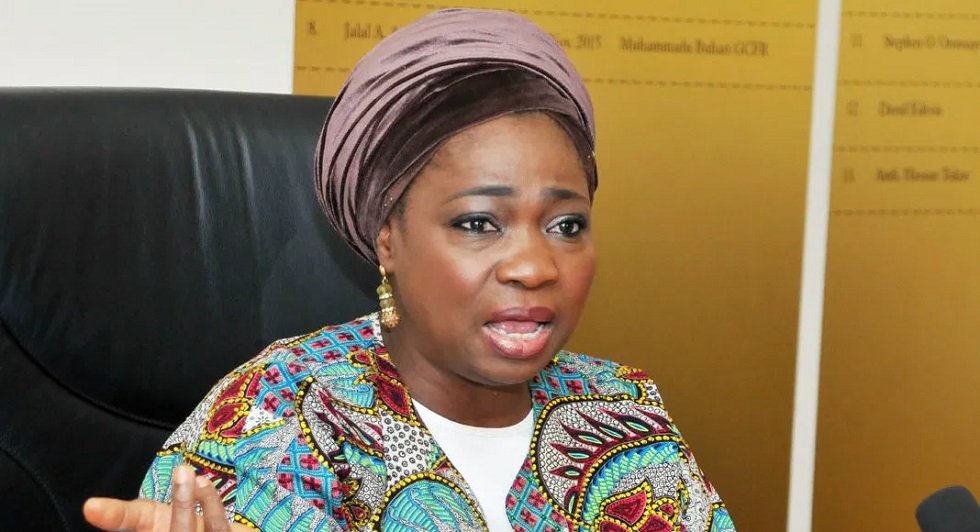
Chairman/CEO of Nigerians in Diaspora Commission Statement
The statement, which was released two hours ago by Abdur-Rahman Balogun, Head Media & Public/Relations, on behalf of the Hon. Abike Dabiri-Erewa, Chairman/CEO of Nigerians in Diaspora Commission (NIDCOM), addressed a few of the details surrounding the students’ trip to Croatia. She noted that the Nigerian Mission in Hungary has been involved in securing their return to Nigeria. Recall that the Chairman had disputed portions of the students' account as reported by The Guardian after that article appeared in The Cable, a Nigerian portal.
“The Minister of Foreign Affairs is on this matter. It’s not as straightforward as you have reported, but the Minister has personally intervened. We should give an update as the intervention continues,” she revealed in a tweet on Saturday, December 7.
Didn’t Inform Nigerian Table Tennis Federation
According to today's statement, five students went to the Fifth World InterUniversities Championships in Pula to compete in table tennis. She also pointed out that they attended the event without the knowledge of the Nigerian Table Tennis Federation. She confirmed Croatian police reports that two had returned to Nigeria after the competition and that another student had applied for asylum in Croatia.
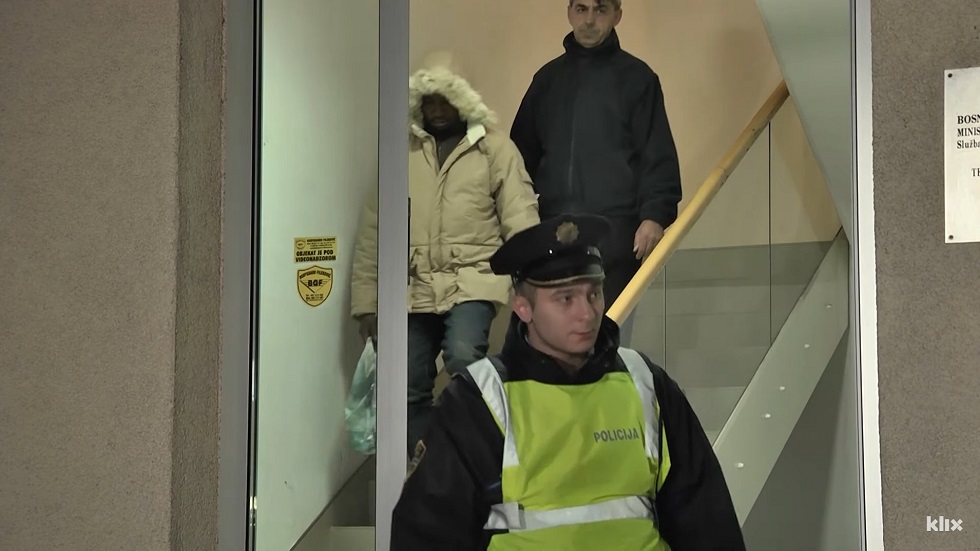
Must use Return Tickets Not Seek Asylum
She emphasized that, as condition of their release, the two students, who are currently being held in Bosnia, must use their return flight tickets from Zagreb and cannot seek asylum in Croatia. While she acknowledged that the Croatian police had denied the students’ allegations, she also noted that Mr. Geoffrey Onyeama, the Hon. Minister of Foreign Affairs of Nigeria, has demanded a full investigation into the incident. She noted that the students are expected to arrive in Croatia anytime from today December 13, 2019.
The statement, which is printed in full below, can be found here.
The Chairman/CEO, Nigerians in Diaspora Commission, (NIDCOM) Hon. Abike Dabiri-Erewa has assured that the two Nigerians in Bosnia Camps are hale and hearty and are expected to return to Croatia anytime from today Friday Dec. 13, 2019 preparatory to come back to Nigeria.
This was sequel to series of diplomatic interventions from the Nigerian Mission in Hungary and Mr. Geoffrey Onyema, Hon. Minister of Foreign Affairs, who directed for full investigations to be carried out.
It will be recalled that two students of the Federal University of Technology, Owerri (FUTO), Abia Alexandro Uchenna and Eboh Kenneth Chinedu, who attended an international table tennis competition in Croatia, ended up in a Bosnian refugee camp.
She said arrangements have been concluded to send the two Nigerians back to Croatia anytime from today, Friday December 13, 2019, adding that the Nigerian Mission in Hungary has taken steps to ensure that the matter is resolved, and the welfare of the two Nigerians protected.
She said that five of them went for the table tennis event without the knowledge of the Nigerian Table Tennis Federation, two returned over two weeks ago, three of them stayed back while one already applied for asylum.
Although the Croatia Authorities through our Ambassador in Budapest denied the allegation involving maltreatment by the Croatian Police, the Hon. Minister of Foreign Affairs, Mr. Geoffrey Onyeama has demanded full investigation into the matter.
She said the conditions attached to their release include usage of their return tickets from Zagreb, Croatia back to Nigeria and must not seek Asylum in Croatia, just as one of them did already.
Dabiri-Erewa appealed to Nigerians to always inform relevant authorities whenever they go on such trips outside the country and be of good behaviour.
According to a report, Abia Alexandro Uchenna, Eboh Kenneth Chinedu, and three other students, arrived in Zagreb, capital of Croatia, on November 12, for the fifth world inter-university championships held in the country.
They were allegedly arrested while taking a walk around the country’s capital on November 18 as they couldn’t produce relevant documents to the police.
The police officers were reported to have transferred the students to the country’s Bosnia-Herzegovina border, where Croatian authorities had gathered a group of illegal migrants attempting to cross into the country.
Signed,
Abdur-Rahman Balogun
Head Media & Public/Relations
Follow our Politics page for updates regarding this story and the migrant crisis in Croatia.
Bosnia Returning Nigerian Students to Their Homeland
Two Nigerian students, Abia Uchenna Alexandro and Eboh Kenneth Chinedu, accused the Croatian police of chasing them into Bosnia. And now the country's authorities will be returning them to their homeland. As Bosnian Minister of Security Dragan Mektić explained to N1 Bosnia, the two students will be returned to Nigeria because that is what they want.
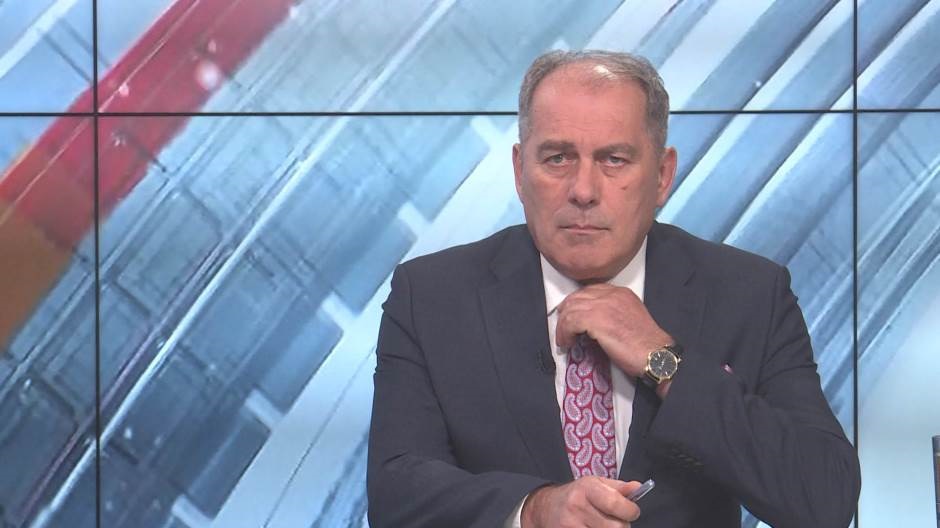
Bosnia Official Claims Students Afraid of Returning to Croatia
"They have agreed to enter the so-called AVR voluntary repatriation program. With their consent, we can return them to their country of origin without subjecting them to additional procedures, readmissions, etc.," Mektić noted.
The minister also explained that the possibility of readmission (i.e. return to the country where the immigrants were staying before entering Bosnia) was not considered.
"They expressed a great fear of returning to Croatia and worried that they would be further harassed there. They were simply afraid for their own lives," Mektić claimed. He added that the two Nigerian students chose not to seek asylum in Bosnia.
Croatian Police and Hostel Manager Deny Students’ Account
Recall that the Nigerian students, who came to Croatia without rackets to play table tennis for a sports competition in Pula, claimed that the Croatian police abducted them in Zagreb on November 17 or 18. According to their uncorroborated account, the Croatian police transferred them to the green border of Bosnia and then expelled them there under threat of violence.
However, the police claim that the Nigerian students “officially checked out of the HI Youth Hostel on November 18, paid their expenses, took their travel documents and possessions, and left for an unknown destination."
The police also noted that another student (in the group of five) tried to enter Slovenia twice and applied for asylum in Croatia on November 27.
The hostel manager confirmed the police account and disputed the students’ claimed check-in and check-out dates. He also disputed the students’ claims that an unidentified “friend” retrieved the students’ passports from the hostel after their alleged disappearance.
Abike Dabiri-Erewa, Chairperson of Nigerians In Diaspora Commission (NIDCOM), also responded to the students’ claims on Saturday, after their story, which originally appeared in Žurnal, was picked up by The Guardian and then The Cable in Nigeria.
“It’s not as straightforward as you have reported, but the Minister (of Foreign Affairs) has personally intervened,” she wrote.
Follow our Politics page for updates on the migrant crisis in Croatia.
Nigerian Students in Bosnia: We won't go to Croatia without UN Escorts!
According to yesterday’s interview for a Bosnian portal, the Nigerian students say they want to go home to Nigeria immediately. If the Bosnian authorities intend to transfer them back to Croatia, they will only agree to go if they are accompanied by United Nations escorts.
Azra Omerović, of the Bosnian portal Žurnal, caught up with the students in East Sarajevo on December 10, 2019.
Original Žurnal Story Went Viral
On December 3, Žurnal published the story of two Nigerian students, Abia Uchenna Alexandro and Eboh Kenneth Chinedu, who allege that Croatian police illegally transferred them to Bosnia and Herzegovina. That story was picked up by several international publications including The Guardian and The Cable, a Nigerian portal. In the meantime, the students were transferred from Velika Kladuša to the Immigration Center in East Sarajevo, after being detained for questioning in Bihać.
The Croatian Ministry of Interior has dismissed allegations by the Nigerian students that they had been illegally transferred to Bosnia by the Croatian police.
Youth Hostel Manager Denies Students’ Account
Branimir Markač, the manager of HI Youth Hostel, the Zagreb hostel where the students stayed, has also disputed the students’ arrival and departure dates. He also denies that the students disappeared on the evening of November 17. He dismisses the students’ claims that an unidentified “friend” later came to pick up their passports, which they claim remained at his hostel after the students were allegedly “kidnapped” by Croatian police. The fact that the students could not remember the name of their hostel further muddies the narrative. There is unconfirmed speculation that the unidentified “friend” might be the other student in their group, who tried to enter Slovenia twice, applied for asylum in Croatia and is currently being housed in Zagreb.
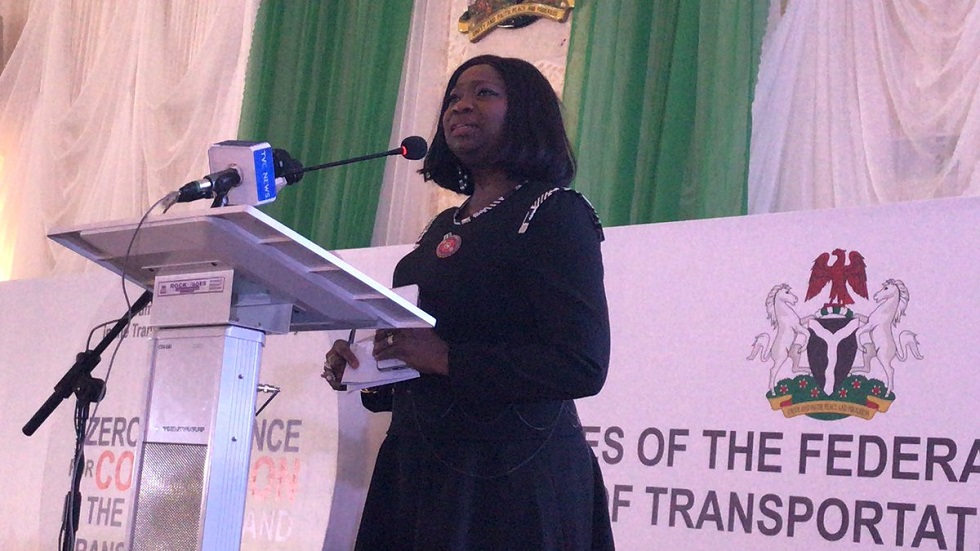
Nigerian Minister of Foreign Affairs Intervened
Abike Dabiri-Erewa, Chairperson of Nigerians In Diaspora Commission (NIDCOM), responded to the students’ claims on Saturday, after their account was picked up by The Cable in Nigeria.
“The Minister of Foreign Affairs is on this matter. It’s not as straightforward as you have reported, but the Minister has personally intervened. We should give an update as the intervention continues,” she wrote.
In their most recent interview with Žurnal, students say they cannot believe what is happening to them and have responded to allegations by the Croatian media and police.
We are Telling the Truth!
“We are scared, we were telling the truth about what the Croatian police did to us. They have accused us of lying because we want asylum in Croatia. We were legal in Croatia, and if we had wanted to seek asylum, we could have applied for it because we had visas,” Kenneth Chinedu insists.
The two Nigerian students are currently being housed in East Sarajevo, at the Center for Foreign Affairs of Bosnia. They say that they have been in custody the entire time.
Currently in Custody in East Sarajevo
“The police questioned us. We told them what happened, and we've been in custody here ever since. We are not allowed to go outside and we're not doing well at all. We need help, have someone help us. Send us home immediately or allow us to be escorted back to Croatia with UN representatives. We will not go to Croatia without UN representatives, maintains Alexandro.
Students Demand UN Escorts for Croatia
“If they want to send us to Croatia, we must be accompanied by the UN. They (the Croatian police) denied everything we said they did to us. We need someone to accompany us every moment and to keep track of what's happening. We are terrified of returning to Croatia after everything that they have done to us. We told the truth and stand by our story!” Alexandro reiterates.
Nigerian Official: There is ‘Back Story’
The Nigerian students are asking the Bosnian authorities to resolve their situation as quickly as possible because they did not enter Bosnia and Herzegovina illegally. However, the details of their transfer to Bosnia remain in dispute, and top Nigerian government official Abike Dabiri-Erewa confirmed that there is a “back story”.
“But whatever the circumstances, the most important thing is to get them back,” she emphasized in Saturday’s tweet.
Follow our Politics page to keep updated on this story and the migrant crisis in Croatia.

